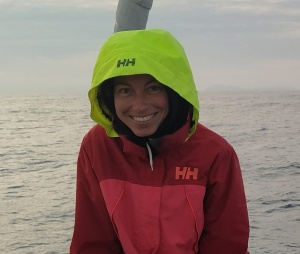Sousa, A., Fernandez, M., Alves, F., Arranz, P., Dinis, A., González García, L., Morales, M., Lettrich, M., Coelho, R.E., Costa, H., Capela Lourenço, T., Azevedo, J.M.N. & Frazão Santos, C. (2023) A novel expert-driven methodology to develop thermal response curves and project habitat thermal suitability for cetaceans under a changin climate.
Science of the Total Environment,
860, 160376. DOI:10.1016/j.scitotenv.2022.160376 (IF2022 9,8; Q1 Environmental Sciences)
Over the last decades, global warming has contributed to changes in marine species composition, abundance and distribution, in response to changes in oceanographic conditions such as temperature, acidification, and deoxygenation. Experimentally derived thermal limits, which are known to be related to observed latitudinal ranges, have been used to assess variations in species distribution patterns. However, such experiments cannot be undertaken on free-swimming large marine predators with wide-range distribution, like cetaceans. An alternative approach is to elicit expert's knowledge to derive species' thermal suitability and assess their thermal responses, something that has never been tested in these taxa. We developed and applied a methodology based on expert-derived thermal suitability curves and projected future responses for several species under different climate scenarios. We tested this approach with ten cetacean species currently present in the biogeographic area of Macaronesia (North Atlantic) under Representative Concentration Pathways 2.6, 4.5 and 8.5, until 2050. Overall, increases in annual thermal suitability were found for Balaenoptera edeni, Globicephala macrorhynchus, Mesoplodon densirostris, Physeter macrocephalus, Stenella frontalis, Tursiops truncatus and Ziphius cavirostris. Conversely, our results indicated a decline in thermal suitability for B. physalus, Delphinus delphis, and Grampus griseus. Our study reveals potential responses in cetaceans' thermal suitability, and potentially in other highly mobile and large predators, and it tests this method's applicability, which is a novel application for this purpose and group of species. It aims to be a cost-efficient tool to support conservation managers and practitioners.


